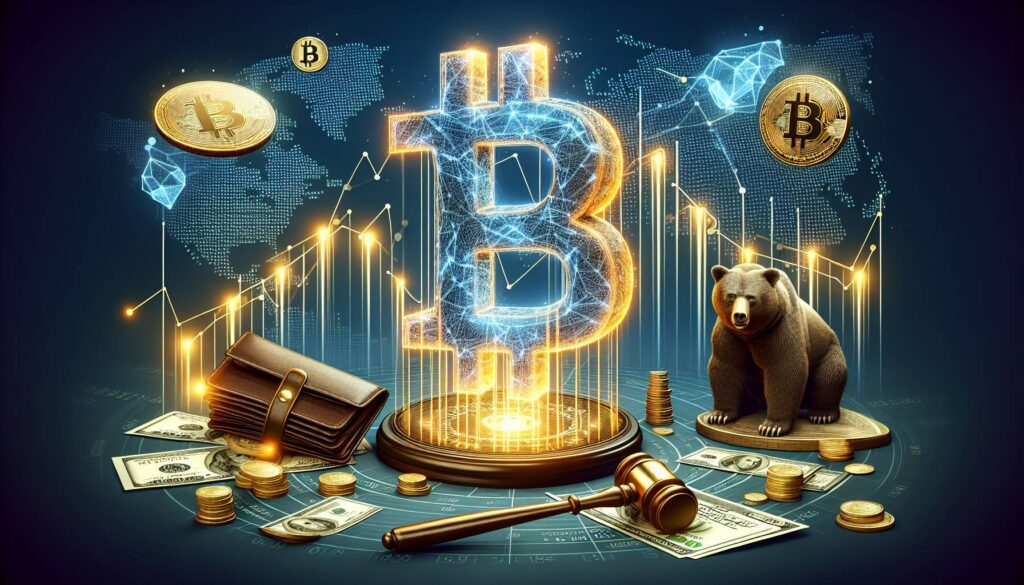In a rapidly evolving landscape, Binance, the world’s leading cryptocurrency exchange, finds itself navigating through the fallout of a hefty $4.3 billion enforcement action in the United States. The situation has become increasingly complex as prominent figures like Senator Elizabeth Warren are probing the Trump administration regarding reports that it may be easing penalties imposed on the platform.
In 2023, Binance faced significant scrutiny, resulting in a settlement with U.S. authorities over sanctions violations, inadequate anti-money laundering measures, and operating without the necessary licenses. Changpeng “CZ” Zhao, the company’s CEO, acknowledged violations of the Bank Secrecy Act, leading to his resignation and a brief stint in prison.
“These reports make it more important than ever that the public understand the Trump administration’s interactions with, and relationship to, Binance and its employees,” Warren and her colleagues wrote, emphasizing the need for transparency.
With speculation mounting over the potential return of Zhao, the BNB token, closely tied to Binance, surged past $1,000 for the first time, vaulting it to become the fifth-largest cryptocurrency by market capitalization. This surge occurred against a backdrop of shifting regulatory attitudes under the new administration, suggesting a pivot towards embracing financial innovation and establishing the U.S. as a leading center for cryptocurrency.
Interestingly, the ongoing prosecution of Binance was initiated during the previous government, and the recent approach by President Trump and his administration reflects a growing interest in the crypto sector. As the Securities and Exchange Commission recently moved to dismiss a longstanding lawsuit against Binance, the market is left to ponder what this could mean for the future of digital assets in the U.S.

Binance Under U.S. Enforcement Scrutiny
The following key points highlight critical developments surrounding Binance, the largest global crypto exchange, and their potential implications for the cryptocurrency market and investors:
- Massive Enforcement Action: Binance is currently facing a $4.3 billion enforcement action in the U.S. for various regulatory violations.
- Settlement with Authorities: In 2023, Binance agreed to settle with U.S. authorities regarding sanctions violations and inadequate money-laundering protections.
- Leadership Changes: Changpeng “CZ” Zhao, the CEO, pleaded guilty to violations and stepped down, impacting the company’s governance and public perception.
- Political Scrutiny: Senators Elizabeth Warren, Richard Blumenthal, and Mazie Hirono are questioning the Trump administration’s dealings with Binance, suggesting a possible political influence on regulatory actions.
- Impact of Trump Administration: The current administration’s shift towards supporting cryptocurrency innovation could change the regulatory landscape for digital assets.
- BNB Token Surge: Following speculation about CZ’s potential return, the Binance-tied BNB token reached an all-time high of over $1,000, indicating market optimism.
- Future of Compliance: Questions raised about the U.S. Department of Justice’s relationships with Binance could have significant implications for the exchange’s regulatory compliance and operational strategies.
Understanding these dynamics is crucial for investors as they navigate the evolving regulatory environment surrounding cryptocurrencies.
Binance Faces Shifting Regulatory Landscape Amid Political Scrutiny
Binance, a titan in the crypto exchange realm, finds itself navigating a complex web following a hefty $4.3 billion enforcement action. While the current political climate seems to favor a more lenient approach towards digital assets, the ongoing concerns raised by prominent figures such as Senator Elizabeth Warren highlight the potential risks involved in this evolving regulatory environment. The recent questioning of Attorney General Pam Bondi regarding the easing of sanctions signals a tug-of-war between traditional enforcement and emerging crypto-friendly policies.
Competitive Advantages: The possibility of regulatory relaxation from the Trump administration could pave the way for Binance to operate with fewer constraints. This shift is especially significant as it could enable Binance to reclaim its position in the digital asset market more aggressively, particularly with the impressive surge of its BNB token, which recently breached the $1,000 mark. Furthermore, the potential return of Changpeng “CZ” Zhao may bolster market confidence, attracting more investors to the platform.
Disadvantages: However, such an environment is fraught with challenges. The scrutiny from lawmakers could instigate further regulatory hurdles, particularly if there’s public backlash against the perceived favoritism towards Binance. Additionally, the unresolved issues surrounding allegations of sanctions violations and insufficient money-laundering protections continue to cast a shadow over the exchange, possibly deterring cautious investors and regulatory bodies alike.
This situation could benefit crypto enthusiasts and investors who view the easing of regulations as a green light for market expansion and innovation. However, traditional financial institutions and compliance-focused entities may find themselves at a disadvantage, as an influx of unregulated activity could lead to greater risks associated with digital assets, impacting their market stability and trustworthiness.
As Binance maneuvers through this tumultuous landscape, the ripple effects of its regulatory journey could shape the broader crypto market’s trajectory, influencing investor sentiment and the operational framework for other exchanges vying for a piece of the burgeoning digital asset pie.

















